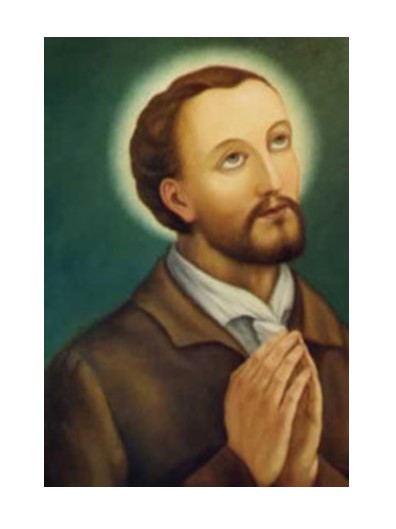Our Patron Saint
 St. John Brebeuf: a man who truly exemplified our motto: Living, Learning, and Serving in Christ
St. John Brebeuf: a man who truly exemplified our motto: Living, Learning, and Serving in Christ
In 1593, Jean de Brébeuf (John Brebeuf) was born in France. In 1622, Brebeuf was ordained as a Jesuit priest. Three years after his ordination, Brebeuf arrived in what is now known as Quebec, Canada to serve as a missionary in the Wendat community near present-day Midland, Ontario.
The Wendat gave John Brebeuf the name Echon, which means “healing tree,” to reflect his dedication and abilities. When paddling and portaging with the Wendat, Brebeuf would endure challenging conditions without complaint. The reference to “healing tree,” also reflects Brebeuf’s height and gentle nature.
Brebeuf wrote instructions to future missionaries, telling them to love the Indigenous people as brothers and sisters. Brebeuf also shared ways missionaries could serve and build respectful relationships with the people.
Brebeuf was a language scholar and fluent in Wendat. It is purported John Brebeuf wrote The Huron Carol in 1640 to tell the Christmas story. Believing it would be pleasing to the people, Brebeuf used the tune of an old folk song called Une Jeune Pucelle to create The Huron Carol.
The Wendat became increasingly threatened by the Iroquois. On March 16, 1649, Brebeuf and fellow Jesuit, Gabriel Lalemant, were taken prisoner by the Iroquois, tortured, and martyred along with Indigenous converts. Brebeuf’s stoicism impressed all who witnessed his suffering on behalf of his call.
John Brebeuf and seven companions were canonized in 1930. In the Canadian liturgical calendar, their feast day is celebrated on September 26.
The Huron-Wendat First Nation continues today. Located in Wendake, Quebec the nation had 4,056 registered members as of July 2018.